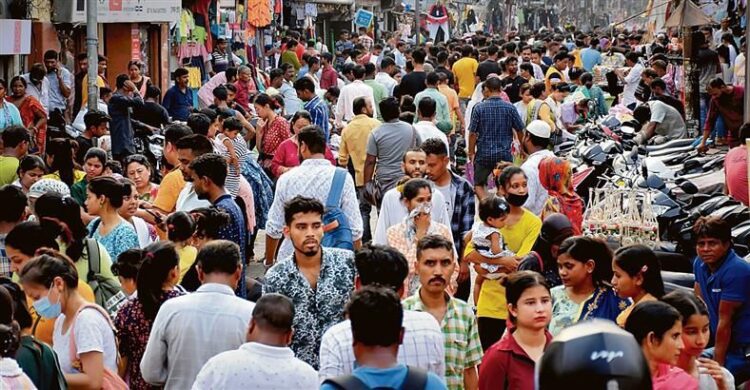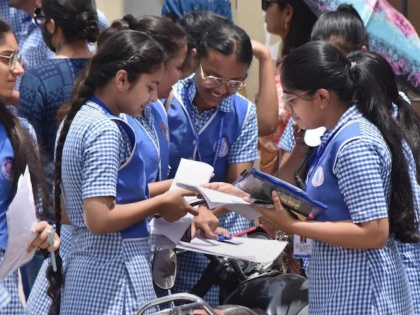Actual people, actual lifestyles
It is important to consider and remember that this past fortnight marked the most sacred holidays for four of India’s main religious groups: Muslims, Christians, Sikhs, and Hindus. All Indians today celebrate Easter, Chaitra Navratras, Eid-ul-Fitr, and Baisakhi.

What does this reveal about our nation? This ought to give us cause to belittle all those political figures who want to divide us into religious enclaves and teach them a lesson. I’m hoping that some of them may learn an important lesson in the near future.
Ironically, although all political parties take satisfaction in praising the syncretic aspect of our civil society, they simultaneously plant the seeds of skepticism that separate them from each other. But the astute Indian voter will, as always, cast their ballot with the customary feeling of shared duty to preserve our nation. They will be able to see through this cunning plot. Actually, I have more trust in the non-elitist rural voter than I do in the metropolitan city slicker. I really hope I’m correct.
Today, differing political opinions are heard at every get-together of friends, family, and neighbors. Friends who have been friends for numerous years have become rare encounters because of their political party affiliation. Married couples and siblings must now avoid the lighthearted leg-pulling and teasing that used to be the standard method of resolving profound divisions that have seeped into their homes.
But please remember, as a wise friend reminded me in a post, that your friends and family—not the government—will support you in times of need. Furthermore, remember that while governments could change every five years, your social connections don’t.
Having stated that, let’s get on to more enjoyable topics. I underwent a cataract operation on one of my eyes less than a week ago. I was really amazed by the quantum jumps that have been achieved since I stood with my mother decades ago when she had hers done. One alternative is to have laser surgery that is entirely digitally assisted, meaning that no human surgical incisions are required.
After the operation, which takes less than 30 minutes, you are released from the hospital. I’ll show you how brilliant the colors seem in my new eye now that I have one new and one old one. It seems as if all of the dirt and grime covering a filthy glass pane has been carefully washed away.
I read books and listen to podcasts because I’ve been confined to the house for the last week and told not to stare at my phone screen too much. While we’re talking about novels, I have to admit that I’m becoming bored with English-language literature. As extinct as the dodo, the genres of magic realism, urban worries, existentialism and alienation, as well as the sense of exile and desire experienced by immigrants, are all extinct now.
The true finding is in the robust sense of identity and social reality that can now be found only in our bhasha literature. The literature published in languages I don’t know is now accessible thanks to some very talented translators, and this has been such an eye-opening revelation. I believe that was another old cataract removed.
India’s publishing businesses have seen a sharp fall in retail book sales. Nowadays, a greater number of individuals download books onto their devices than read paper books. Some people use audiobooks. The worst impacted are the niche publishers, who are staffed by devoted editors and publishers but are forced to depend on the marketing resources of the large publishing firms due to drastically reduced PR budgets.
As a consequence, a brand-new genre of writing has emerged: the work of very aspirational young authors who are often woke activists or have the financial means to hire publicists, independent editors, agents, and other intermediaries to have their books read, discussed, and evaluated. I promise you that the majority should be destroyed since many of them are the literary equivalent of a spoiled group of brats.
Naturally, they like writing about food, health and self-care, motivating yakkety-yaks, and self-help topics. They are transient, fleeting, with a very narrow experience arc and a language that is always becoming less. If you’ve just been to a literary festival, you can easily identify them from a distance as they stalk a well-known author, publisher, or promoter.
When someone says, “Ma’am, I want to be a writer,” I immediately back away. Could you please assist? A Caesarean procedure is not the solution if such a person does not have a book that is screaming to be written.
However, it is remarkable how well-written and insightful the writing is that is coming from non-English authors. The intensity draws you in right away in languages like Marathi, Malayalam, Tamil, Maithili, Urdu, and Hindi, to mention a few. None of these issues—gender, poverty, the oppressive lives of individuals stranded in isolated places, social invisibility, sexual exploitation, and Dalit stories that are true experiences rather than made-up dramas—need for encouragement or instruction from others.
These are the true life tales of actual individuals.







